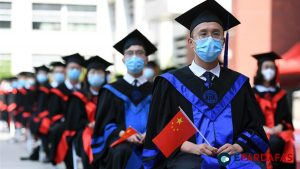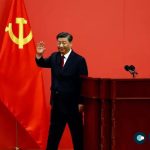
China’s Economic Instability Worsens Amid Real Estate Meltdown, Echoes of 2008 Financial Crisis

China’s economic landscape is fraught with challenges, as a detailed analysis by CNBC highlights the nation’s deepening woes. The property market is in turmoil, deflationary pressures loom large, and the stock market reels under significant volatility. The CSI 300 index, a benchmark of Chinese stocks, has plummeted by approximately 40% from its 2021 peaks.
Recent data from China’s National Bureau of Statistics paints a bleak picture, with manufacturing activity contracting for the fourth consecutive month due to dwindling demand. This downward trajectory has prompted investors and economists to reassess China’s economic trajectory. Allianz, for instance, has revised its growth forecast for China downward, now anticipating an average growth rate of 3.9% between 2025 and 2029, a significant drop from pre-pandemic estimates of 5%.
Eswar Prasad, a former International Monetary Fund official, voiced concerns to Nikkei Asia regarding China’s economic prospects, remarking, “The likelihood of the prediction that China’s GDP will one day overtake that of the U.S. is declining.” This sentiment finds resonance with Mohamed El-Erian, an adviser at Allianz, who pointed out disparities in stock market performance between China, the U.S., and Europe.
Despite these challenges, Chinese leadership remains sanguine. President Xi Jinping, in his New Year’s Eve address, asserted that China’s economy has become “more resilient and dynamic this year.” While certain data points support this optimism, such as expanding factory activity and signs of recovery in the luxury sector, the consensus on China’s economic outlook remains fragmented.
Nobel Memorial Prize-winning economist Paul Krugman strikes a pessimistic note, suggesting that China is entering an era of stagnation and disillusionment, particularly after the lifting of its zero-Covid measures failed to spark the anticipated economic resurgence.
The real estate sector, a linchpin of China’s economy, grapples with severe distress. Kyle Bass, founder of Hayman Capital, draws parallels to the U.S. financial crisis but warns of a more magnified impact, stating, “This is just like the U.S. financial crisis on steroids.” He points to excessive debt reliance within China’s real estate sector, likening its trajectory to the conditions preceding the 2008 financial crisis. Despite regulatory assurances, Bass predicts a worsening economic landscape, concluding, “The basic architecture of the Chinese economy is broken,” as reported by GB News.












Comments